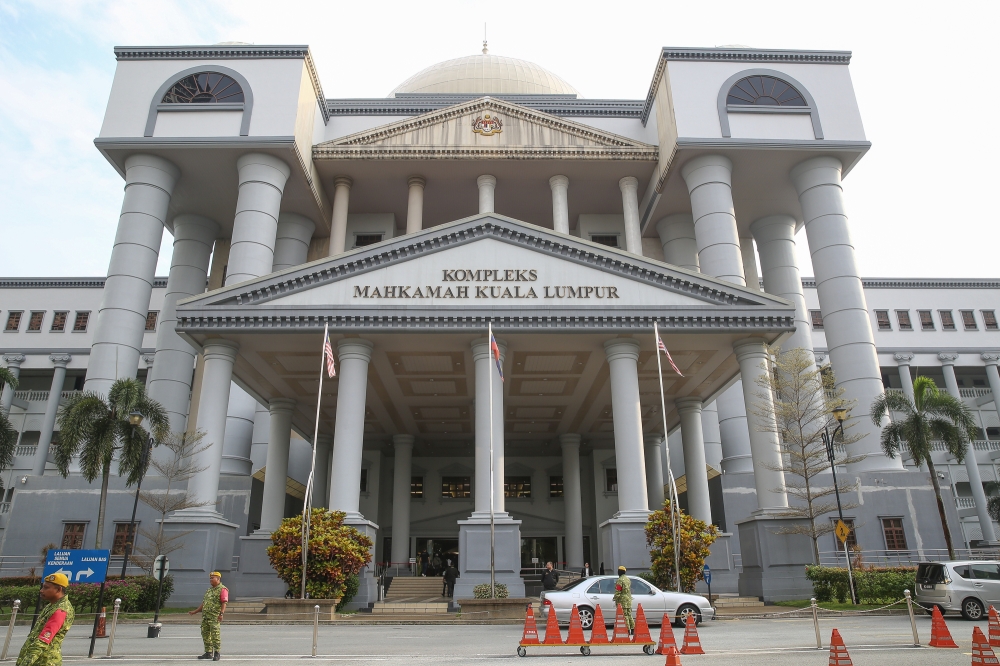PUTRAJAYA, Jan 10 — The Federal Territories Pardons Board’s official records on Datuk Seri Najib Razak’s case does not contain any additional document or addendum, its secretariat confirmed today.
The secretariat’s announcement today came amid Najib’s claims that the former Yang di-Pertuan Agong had added on a document or addendum to the Pardons Board’s January 29, 2024 decision.
Najib had claimed the alleged addendum would enable him to serve the rest of his reduced six-year jail sentence under house arrest.
But the Pardons Board’s secretariat — the Prime Minister’s Department’s (JPM) Legal Affairs Division (BHEUU) — made it clear that it had no records of any extra documents added on to the January 29, 2024 Pardons Board meeting which had considered Najib’s pardons application.
“In relation to this matter, BHEUU, JPM as the Secretariat to the Pardons Board confirms that no additional document or addendum is in the file or official record under BHEUU, JPM and did not receive any notification or official orders from the Istana Negara regarding this matter,” the secretariat said in a statement today.
The secretariat said action could potentially be taken against any statement that could confuse the public about the Pardons Board’s position or role.
The January 29, 2024 meeting was where the Pardons Board decided to reduce Najib’s 12-year jail term to six years and to reduce his RM210 million fine to a RM50 million fine.
The Pardons Board’s January 29, 2024 meeting was chaired by the then 16th Yang di-Pertuan Agong, whose reign as Malaysia’s king ended on January 30, 2024. The former Malaysia king is currently the Pahang Sultan.
The Pardons Board’s February 2, 2024 announcement of the reduced jail time for Najib made no mention of any house arrest order or additional documents, while Najib has claimed that such an add-on document — sometimes referred to as “addendum” or “supplementary order” — was issued by the then Agong and actually exists.
Najib is still pursuing his case in the courts as he wants the government to verify the alleged house arrest addendum exists, and as he wants to be allowed to be placed under house arrest. The courts have yet to decide if the alleged add-on document is authentic and valid.
The Court of Appeal on Monday sent his case back to the High Court to enable it to be heard before a new judge.
Najib’s court challenge on the alleged house arrest addendum is scheduled for case management next Monday at the High Court, with no hearing date fixed yet.
Having been a prisoner in Kajang prison for two years and four months now, Najib would complete his six-year jail term by August 23, 2028.
Najib’s jail term would end earlier in August 2026, if he is granted the typical one-third reduction for prisoners who show good behaviour and if he pays the RM50 million fine.

All Pardons Board documents under OSA, only authorised individuals may have access
In its statement today, the secretariat also took the opportunity to explain how the Pardons Board for the three federal territories (Kuala Lumpur, Labuan and Putrajaya) is structured and how it functions.
The secretariat said the Federal Territories Pardons Board is an independent body set up based on the Federal Constitution’s provisions.
“The Pardons Board is not a government agency or a government department under the BHEUU, JPM,” the secretariat said, stressing that the BHEUU only plays the role of secretariat.
It said the Pardons Board at all states within Malaysia are chaired by the states’ respective Sultan or governor, and with the Menteri Besar or chief minister of each state also becoming members of the state-level Pardons Board.
As for the Federal Territories Pardons Board where the federal territories are equivalent to the states, the federal territories minister is also a member of the Pardons Board, based on the Federal Constitution’s Article 42 (11), the secretariat said.
“Therefore, the Minister in the Prime Minister’s Department (Law and Institutional Reform) is neither a member of the Pardons Board nor involved in any of its administrative matters or management, including any matters related to the pardon of any prisoner,” it said, when clarifying that the law minister would not be involved in the Federal Territories Pardons Board or prisoners’ pardons.
The secretariat added that the Pardons Board also does not deal with the law minister on any matters relating to the Pardons Board, except for matters related to the Yang di-Pertuan Agong as provided under the Federal Constitution.
The secretariat also said the Pardons Board’s meetings and its information are fully subject to the Official Secrets Act (OSA).
“All related documents can only be accessed by the Pardons Board members and individuals who are given direct authorisation by the Board.
“No one else, no matter their rank or position, has access to those documents, in line with the principles of confidentiality and integrity,” it said.
In the same statement, BHEUU also said it is always committed to carry out its duties as the Pardons Board’s secretariat professionally, transparently and with integrity in line with the Federal Constitution and existing laws.
It said all matters relating to the Pardons Board have and will continue to be carried out according to the existing laws and procedures.



















